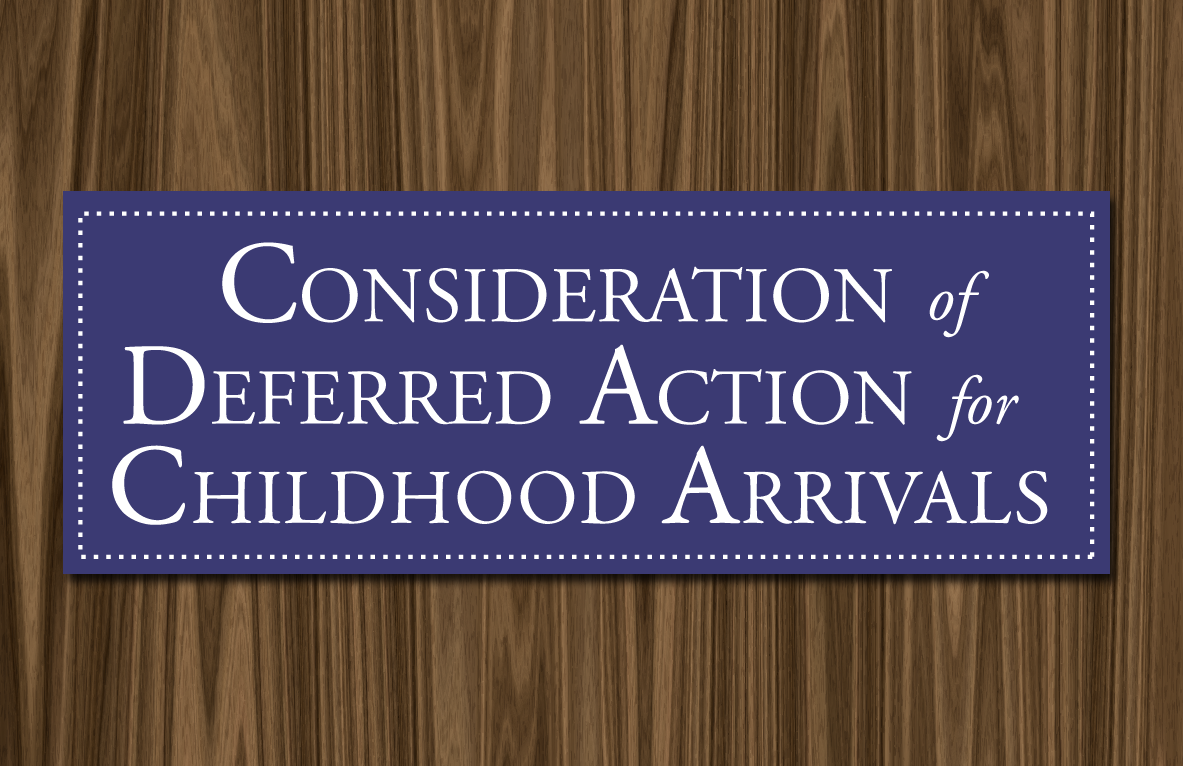There is much to critique about President Obama's controversial "Deferred Action for Childhood Arrivals" (DACA) program, and the Center for Immigration Studies has quite a bit of that, but I've spent a significant amount of time simply trying to get the media to accurately report how the program operates. All too often, either out of ignorance or an intentional effort to mislead readers, journalists simply don't get the facts right when describing DACA.

The most widespread bits of misinformation are contained in this oft-repeated line: "DACA is for children brought here through no fault of their own."
In reality, DACA isn't just for "children" and the program doesn't require that illegal aliens prove they were brought here. Advocates of the program frame it as such because they want to make beneficiaries sound as sympathetic as possible, thereby making the program sound more justifiable.
But DACA benefits people who will start turning 34 this month. And people who knowingly and willingly entered the country on their own volition are, in fact, eligible (provided they claim they entered before reaching 16). While it is true that DACA does benefit some people who were "brought here through no fault of their own" — and this is the argument of journalists who use the "brought" language — it is wrong to describe the program in a way that suggests all beneficiaries are not legally or morally culpable. The White House could have limited the scope of DACA to people who actually were "brought" here at very young ages, but it chose not to.
The DACA program also benefitted a man who is currently behind bars for allegedly murdering four people, including a contestant in the "America's Next Top Model" reality show. Using the logic of some journalists, one could describe DACA as a program "for alleged murderers" — after all, some recipients are alleged murderers!
It would be better if journalists simply stuck to the language contained in the Obama administration's guidelines and describe DACA as a program for people who "came to the United States".
Of course, the bigger picture is that none of the terms contained within the Obama administration's DACA program are all that meaningful anyway because they can be changed at any time since DACA was not written into law by Congress. In fact, Obama is attempting to make a number of changes to expand DACA (e.g. abolishing the upper age limit; moving up the date of continuous residency requirement from 2007 to 2010; and extending the renewal period from two years to three), but these changes are currently held up in court. The media should be very skeptical of describing DACA's terms because, as I've explained elsewhere, the DACA program isn't worth the paper it's printed on.
A series of articles in Nebraska's Lincoln Journal Star reporting the state's effort to grant driver's licenses to illegal aliens who have received DACA made the error of describing DACA as a program for children of illegal immigrants who were brought here. I attempted to get the editors to simply make the corrections, but they did not want to and instead allowed me to publish a letter to the editor in their opinions section. I really didn't think it appropriate to call out a newspaper's errors in the newspaper itself, and I wasn't looking to make a public issue of it. I just wanted the errors corrected so that they aren't made in the future.
Nevertheless, a letter is what the editors suggested and it was published in the Journal Star on June 5, 2015. It reads as follows:
The recent article, "Senators override Ricketts' veto of Dreamers licenses" (May 28), has some significant errors that, unfortunately, the Journal Star is unwilling to correct.
The first error describes driver's license recipients as "children of undocumented immigrants." However, the licenses will be for anyone who has received DACA status, and parental status is not of any consequence to DACA. For many DACA recipients, their parents are not even in the United States. DACA advocates intentionally mislead reporters because they want to create the image of a young person brought here through no fault of their own: It's the parent, not the child, who broke the law, they argue.
Consequently, the Journal Star also errs by describing DACA recipients as "young immigrants who were brought to this country as children." As per the Obama administration's guidelines, there is no requirement that DACA beneficiaries (who will be as old as 34 this month) prove they were "brought" here. This is a significant distinction, both legally and politically: On the one hand, the Journal Star's description might make some illegal aliens believe they are not eligible, while on the other hand it advances the misleading claim that all DACA recipients are not legally or morally culpable. In fact, one can enter the country illegally on their own volition and still qualify for DACA.
Without a doubt, the immigration issue is convoluted, but the myths surrounding DACA must be ended. Many would be surprised to learn, for example, that DACA recipients can renew their status even as unemployed dropouts.
Jon Feere, Center for Immigration Studies, Washington, D.C.
For more articles on the misinformation swirling around DACA, see my partially successful attempt to get CNN to correct an error-filled piece, my effort to highlight errors in a Washington Post article, a recent Twitter conversation with a Huffington Post reporter, and my six-point piece on the most popular DACA myths.
